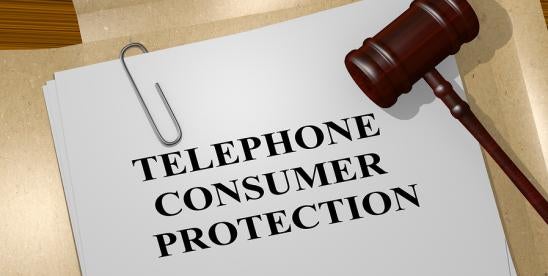So we have been closely following the evolution of the TCPA’s automatic telephone dialing system (ATDS) definition following the Supreme Court’s Facebook case.
As everyone should know by now, in Facebook the Supreme Court held an ATDS requires the capacity to use a random or sequential number generator (ROSNG) to STORE or PRODUCE telephone numbers to be dialed. “Producing” numbers using an ROSNG means generating them. But how does one “store” telephone numbers using an ROSNG?
One way–per FN7–is if the system has the capacity to use an ROSNG to determine the sequence in which numbers are dialed. And that, of course, is the science behind human selection systems like Safe Select or Drips’ Initiate platform–systems that require a human to determine sequence to avoid fn7 problems.
But not every court views fn7 as a source of concern. The Ninth Circuit has famously dispatched with the entire “storage” predicate and focused solely on whether a system can “produce” telephone numbers using an ROSNG. That’s a great short term win for Defendants, but it is not what the Supreme Court said. So how long can it last?
Unclear. For now, however, courts do continue to follow the errant “only generating telephone numbers randomly matters” philosophy and that is a real victory for debt collectors.
For instance, in McDonald v. Navy Federal Financial Group, 2023 WL 5797724 (D. Nev. Sept. 7, 2023) the Court dismissed a Plaintiff’s TCPA claim finding that debt collection and ATDS usage are simply incompatible:
Plaintiff’s allegation renders implausible her contention that she was called randomly or using a sequential number generator as required to state a TCPA claim. Instead, Plaintiff says she repeatedly received calls from Defendant to her cell phone because Defendant was attempting to collect a debt she owed. These allegations are insufficient to state a claim under the TCPA.
Cool!
But also, concerning!
Folks reading cases like McDonald may really be getting lured into a sense of false hope. I spoke with in house counsel with a debt collector not long ago that suggested the entire industry was moving toward using predictive dialers without consent–and disregarding oral revocation efforts. This whole things feels like a trap to me, and I have lived through enough cycles of the TCPA expanding and contracting that I know one when I see one…
Trust me–if this issue ends up back in front of the Supremes they are not going to adopt the “only random generation of telephone numbers triggers the TCPA” approach. No way. They already had that chance and they didn’t bite. So understand that if you’re relying on that sort of interpretation what you are betting on is the Supreme Court not looking at this issue again.
Maybe it won’t. But with the volume of TCPA cases out there–and a circuit split already in existence– I wouldn’t bet my company on it.




 i
i


